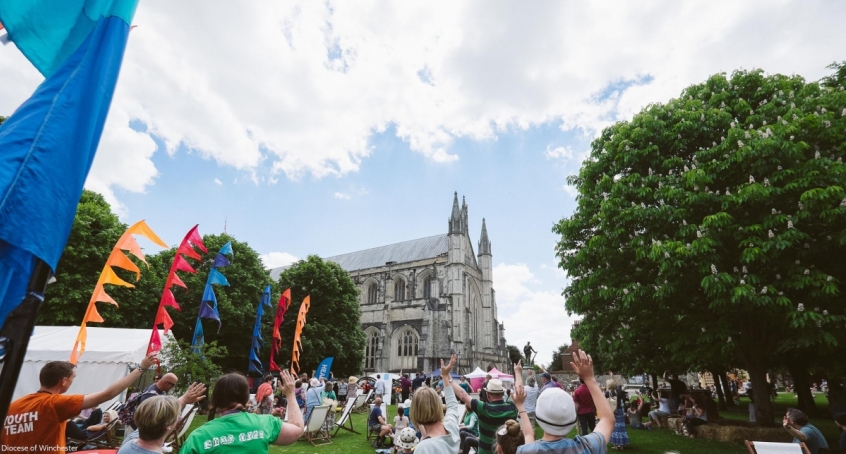
The Church of England has appointed Bishop Graham Tomlin to oversee its new Centre for Cultural Witness.
Tomlin will step down in August from his current role as Bishop of Kensington to lead the centre, which will be based at the Archbishop of Canterbury's official residence, Lambeth Palace.
The centre will explore how the Church can better communicate the Christian faith as part of its public witness.
The Archbishop of Canterbury, Justin Welby, called the launch of the centre "timely, creative and essential", and said he hoped that the initiative would "excite, inspire and engage many with Jesus Christ, and the joy and wonder of his kingdom".
"We are living in times – and in a world – that urgently need healing, justice and hope. In other words: a world that needs the gospel of Jesus Christ and the good news of his kingdom," he said.
"Giving expression to that good news is the task of every new generation of Christians."
The Church of England said the centre would be "rooted in the Anglican church but fully ecumenical and international", and "embrace a wide range of Christian voices to seek to share the rich wisdom that the Christian faith can offer contemporary societies".
Bishop Tomlin said the work of the new centre was about giving the Church a "clearer voice".
"We have a remarkable story in the Christian faith that has shaped cultures over centuries in profound ways," he said.
"Yet we need to find better ways to communicate that faith so that others can understand and believe it today.
"My hope and prayer is that this new initiative can help re-tell that story in imaginative ways for new generations and enable the Church to find a clearer voice to share its wisdom with others."
The centre will have its formal launch in the summer and will initially run as a four-year project.
The Bishop of Aston, Anne Hollinghurst,a member of the Church of England's Faith and Order Commission, said the centre was much-needed at a time of widespread division and inequality in society.
"Our society faces multiple challenges for which it appears ill-equipped," she said.
"The global pandemic has highlighted the divisions and inequalities in society. Issues of racial and climate justice demand urgent attention. Digital communication and artificial intelligence are changing how we live.
"At the same time there is disillusionment with political and economic systems and those who run them. There is a need to lift up the eyes of our nation to a new horizon of hope.
"That horizon is what the timeless good news of Jesus Christ reveals but we often struggle as the church in our contemporary culture to speak engagingly of the compelling beauty, sweep and relevance of this horizon."
Part of the centre's work will be the launch of a learning and training programme for senior Christian leaders and "emerging communicators", but it will also conduct theological research into how the Church can best witness to contemporary culture.
A magazine-style website will be set up to help explain the Christian faith "in accessible terms" and offer perspectives on contemporary cultural issues.
Rev Dr Andrew Davison, theology lecturer at Corpus Christi College Cambridge, said the initiative was "sorely needed" but added that the Church of England had a wealth of theology to draw upon.
"The theological tradition of the Church is one of its treasures, but it has become a hidden one. The centre for Cultural Witness looks set to bring it to light," he said.
"This initiative is not about building defences; it is about exploring the central questions posed by human beings down the centuries in conversation with people of all faiths and none.
"Setting arid proofs and arguments aside, it wants to show that theology is the stuff of life and the Christian faith has wisdom to share with everyone."
The Bishop of Loughborough, the Rt Rev Saju Muthalaly, welcomed the launch of the centre.
"The person of Jesus Christ is God's most precious gift to the world, and the Church's call to be a community of witnesses to Christ's life, death and resurrection is not diminished in a pandemic world," he said.
"I believe the CCW's outward-looking focus and desire to creatively, prophetically and imaginatively reflect Christianity in our culture - and do it in such an intentional, international, transcultural and ecumenical manner - will be a tremendous blessing."













